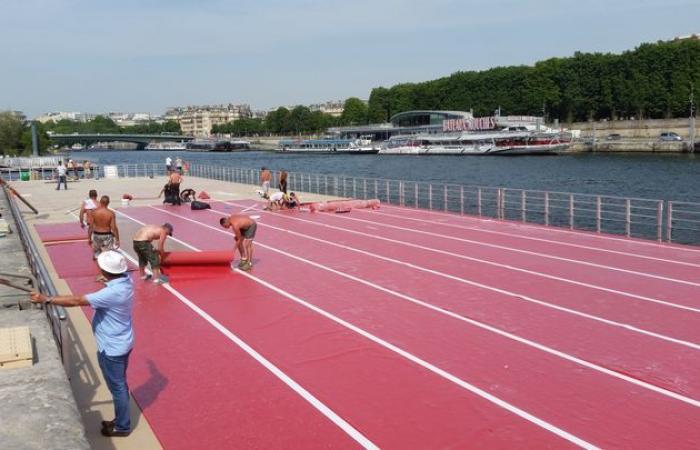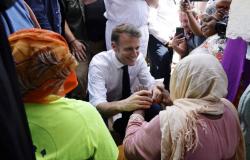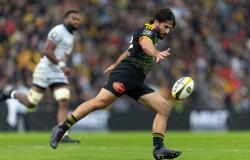Competitions without broadcasters and little-recognized athletes… Despite a successful 2024 Olympics, athletics is seeking to reinvent itself to attract fans and funds but the avenues explored are not unanimous.
Yet Olympic champion in the 100m, the queen distance of the king sport of the Games, the American Noah Lyles complains of not being recognized in the street. And while the times are panicking in many disciplines, no athlete anymore has the notoriety of Usain Bolt, whose aura went far beyond the stadiums.
Cause or consequence, athletics attracts less broadcasters. If in France, the L'Equipe group has just announced an unprecedented partnership for the broadcast of the Diamond Leagues from next year, the announcement comes after several years pre-Olympics at home without a broadcaster in the country, with fans forced to follow the major competition circuit on YouTube.
In the United States, the giant NBC, which has been broadcasting the Diamond League since 2017, has not renewed its contract after the 2024 Olympics, even though Los Angeles is hosting the next edition in 2028.
These major meetings, the scene of most recent world records, will now be broadcast on FloTrack, a niche channel with a much more expensive annual subscription.
“This is probably the worst news for the Diamond League,” lamented three-time American Olympic champion Gabby Thomas at the time of the announcement in the spring.
In the age of social networks, with new modes of consumption of sport, some point to the complexity of the Diamond League format to explain its lack of attractiveness, with different events from one meeting to another and athletes who rarely clash.
In an attempt to “save what can be saved” according to him, quadruple Olympic champion Michael Johnson is launching a competing competition circuit in 2025, the Grand Slam Track.
The American, now 57 years old, aims to create regular confrontations (four meetings between April and June) between the best runners in the world, from sprint to middle distance, with bonuses multiplied by ten compared to the Diamond League ( 100,000 dollars for the winner).
“Having the best against each other, that’s what’s exciting about our sport, that’s what we create,” Johnson told the BBC. However, he is criticized by purists because his circuit excludes competitions (jumps and throws), which are not salesy enough according to him but which nevertheless constitute the essence of “Track & Field” (“track and competition”, athletics in English), and who also have their share of stars, the Swedish pole vaulter Armand Duplantis in the lead.
Behind the great ambitions, the enthusiasm around the Grand Slam Track is not enormous: here again, no broadcaster has rushed and large stadiums, like London, have refused to host the competition, believing that it would never be profitable.
Big names have certainly signed, like world record holder in the 400m hurdles Sydney McLaughlin-Levrone, but others are missing, like sprint kings Noah Lyles and Sha'Carri Richardson.
“As long as I don't see a TV channel in the project, I can't decide to participate in it,” Lyles explained to the specialist media Letsrun.com.
Since a study on the subject during the 2023 World Championships, the International Athletics Federation is well aware that audiences, particularly for competitions, are losing momentum and that it is having difficulty attracting young fans. She is therefore also exploring new avenues.
World Athletics has thus announced a new “Ultimate Championships” from 2026, a sort of World Championships with a tighter program (26 individual disciplines compared to 42 at the World Championships) and divided into three evenings (compared to 9).
It will be “an athletics never seen before, a festival of sport and innovation” which will “attract fans who have never watched athletics”, promises its president Sebastian Coe, candidate to head the International Olympic Committee (IOC).
To give rhythm to the competitions, he also suggested removing the take-off board from the long jump, to reduce the downtime linked to bit jumps. But the announcement in March of this possible reform made athletes jump with anger, illustrating the difficulty of reforming without distorting a sport in which certain disciplines date from Antiquity.
“In general, I'm not sure that athletics really wants to change,” summarizes Noah Lyles.






